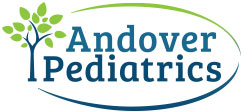Sore Throat
Sore throats are a very common complaint in children during the fall and winter months. They arise from inflammation of any throat structure (tonsils, pharynx, etc) and in most cases are mild and require no special treatment.
While most sore throats are caused by viruses, it can often be difficult to tell the difference between a viral or bacterial infection. Both can be associated with fever and redness of the throat and tonsils. However, a viral sore throat is usually associated with a runny nose and cough, while a bacterial sore throat is often associated with pus on the tonsils, tender swollen lymph nodes and no cold symptoms.
Strep throat is unusual in children under 3 years of age. A rapid strep test or throat culture will be positive if the Strep bacteria (group A beta-hemalytic Streptococcus) is the source of the sore throat. In our office, we will perform a rapid strep test and treat immediately if it’s positive. If the strep test is negative in the office, we then send off an actual culture to the lab (results take 24-48 hours). You will be called ONLY if your culture turns positive, and an antibiotic will then be prescribed. No antibiotic is necessary if both the rapid test and culture are negative.
Treatment for a sore throat is always supportive. Hydration is maintained by drinking a lot of fluid. In addition to acetaminophen or ibuprofen for fever and pain, children over one year of age may find some relief from drinking warm fluids. Avoid spicy or acidic foods. Antibiotics are used for bacterial throat infections and not for viral throat infections. The usual duration of a viral sore throat is 3 to 4 days. Twenty four hours after starting antibiotics for Strep throat, your child is no longer contagious and can return to day care or school if he or she is feeling better.
Call our office immediately if in addition to sore throat, your child has excessive drooling, difficulty swallowing, breathing difficulty, or is active very sick.

